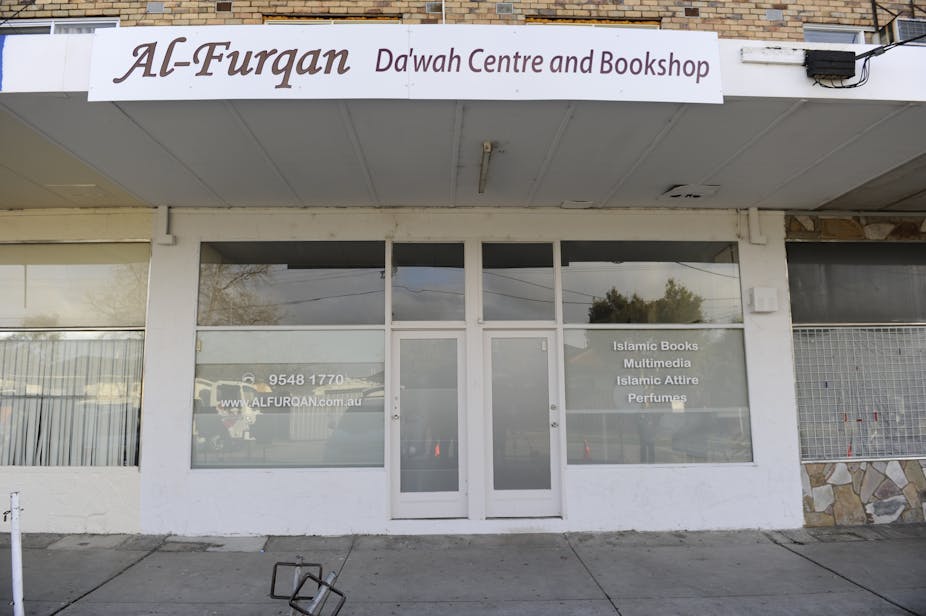A man arrested yesterday in anti-terror raids in Melbourne has been charged by Federal Police with four counts of making a document likely to facilitate terrorist acts.
But this does not mean there is a significant terrorist presence in Australia.
Australia has enjoyed a peaceful recent history, relatively free from the threat of political violence.
Australia’s 1997 Foreign and Trade policy White Paper did not list violent extremism among the number of potential non-military threats to the country and at the turn of the century Australia’s peak intelligence analysis agency, Office of National Assessments, did not employ a single analyst dedicated full time to the threat of terrorism.
But the events of 11 September 2001, the Bali bombings in 2002 and other such incidents demonstrated that Australia was not immune to the global phenomenon of jihadist violence. Indeed, more two hundred Australian civilians have been killed overseas in attacks by jihadists since 2000, and the Australian Embassies in Jakarta, Iraq and Phnom Penh have also been targeted.
The threat from afar
In 2000, British immigrant Jack Roche conspired with Jemaah Islamiyah and al Qaeda figures to attack Israeli and Jewish targets during the Sydney Olympics. In 2003, Sydney resident Faheem Khalid Lodhi, who had trained with Laskar e-Toiba, was charged and later convicted over conspiring to prepare a terrorist attack.
These early plots appear to have been brainstormed, funded and to some extent controlled overseas, although both attempted to recruit members from within the Australian community.
Between 2001 and 2003 Al Qaeda leader Osama bin Laden and his deputy Dr. Ayman al-Zawahiri made six separate statements citing Australia as a potential target due to its military involvements in East Timor, Iraq and Afghanistan.
Homegrown terror
From 2004 onwards Australia has faced jihadist plots which have been largely home-grown.
Peter Varghese, former Director of the Australian Office of National Assessments stated in May 2006:
The greatest terrorist threat now comes from a large, diverse and fluid network of Islamist groups and individuals more often inspired by Al Qaeda than directed by it.
Arrests made jointly in Sydney and Melbourne in 2005 and Melbourne in 2009, as well as the raids conducted in Melbourne yesterday are testaments to this assessment.
The largest number of arrests occurred between November 2005 and January 2006, when individuals located in Melbourne and Sydney were arrested in a joint investigation between federal and state police services and ASIO (codenamed Operation Pendennis). Eighteen men were convicted under terrorism legislation. More recently, five Melbourne based men were arrested in Operation Neath in 2009, accused of planning a suicide attack on Holsworthy Army Barracks in Sydney. Three were convicted.
It’s a family affair
It is worth noting that jihadist activity in Australia has almost exclusively contained individuals located in either Melbourne or Sydney. And though specific plots are easily identified, there is an interconnected network of Australian jihadists which transcends time and specific operations.
Family connections in particular have played a significant role in the passing of ideology as well as the recruitment and retention of jihadists into the network. While there are many external influences which persuade individuals as to whether or not they should engage in violence, one of the most prominent factors explaining which members have joined the Australian jihadist network is the influence of family and close friendships.
Policing the ‘scene’
Every case of jihadist terrorism seen in Australia has been a case of individuals on the fringe of their community breaking away from established institutions and forming their own small, socially isolated groups.
The initial identification of each of these radical individuals and groups (leading to investigations by authorities) has come from within the Muslim community. This phenomenon is consistent with yesterday’s raids and is a testament to the positive relationship between the community and law enforcement built in Victoria over many years.
Overall, Australia has experienced jihadist activity over the last decade or so, but significantly less so than in many other Western countries. Our “jihadist scene” has tended to be small, interconnected and closely-monitored.
Yesterday’s raid is another example of the effective police action and community cooperation which has so far prevented an act of jihadist terrorism on Australian soil.

